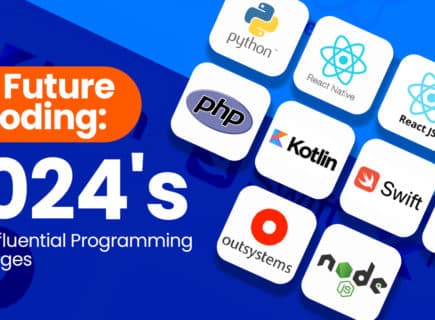As we embark on the digital age’s relentless advance, a discipline is rapidly emerging as the bedrock of our technological future: data science.
But what is Data Science?
Why is it gaining such unprecedented traction?
What do data scientists bring to the table, and where is this field headed? Dive with us into the fascinating world of data science and explore its vast expanse.
What is Data Science?
Data Science, at its core, is an interdisciplinary field that employs scientific methodologies, algorithms, and systems to extract insights and knowledge from structured and unstructured data. It’s an amalgamation of various fields, including statistics, computer science, and information theory. But it’s more than just a sum of its parts; data science is about making sense of data deluges in ways that add real-world value.
Why the Surge in Popularity?
Data Overload
The 21st century has seen an explosion of data. The Internet of Things (IoT), online transactions, social media platforms, and digital communications have contributed to an exponential rise in data production. In fact, 90% of the world’s data has been created in the last two years alone. In fact, we’re creating 2.5 quintillion bytes of data every day. This sheer volume of information necessitates sophisticated methods for understanding and interpretation.
Informed Decision Making
Enterprises that harness the power of data-driven decisions often outperform their counterparts. In industries from e-commerce to healthcare, the ability to predict consumer behavior or forecast market trends can be the difference between leading the market or becoming obsolete.
Technological Advancements
With the rise of technologies such as Machine Learning and Artificial Intelligence, the potential to derive deep insights from data has grown exponentially. These technologies rely heavily on data science principles.
Risk Management
In the financial sector and beyond, understanding data helps institutions manage and mitigate risks, safeguarding them from potential pitfalls.
Personalization
In a world overwhelmed with choices, businesses that can offer tailored experiences to their customers stand out. Data scientists facilitate this by analyzing patterns and preferences.
The Role of a Data Scientist
So, if data is the new oil, data scientists are the modern-day refineries, processing raw data to produce actionable insights. Their tasks typically involve:
Data Cleaning
Raw data is messy. Before any analysis, it needs to be cleaned and structured – a task often considered more art than science.
Exploratory Data Analysis (EDA)
This involves understanding the data’s characteristics through visualizations and statistical methods. It’s about discerning patterns, anomalies, or any relationships within the data.
Model Building and Machine Learning
Once data is understood, data scientists employ various algorithms to predict future events or categorize data points. This could involve anything from predicting stock market trends to recommending a movie on a streaming platform.
Interpretation and Communication
Crucially, data scientists translate their findings into insights that non-technical stakeholders can understand. Their ability to convey complex ideas effectively is as important as their technical acumen.
The Future of Data Science
Data Science isn’t just a fleeting trend; it’s a discipline that’s evolving and growing, promising a transformative impact on businesses, societies, and individuals. Here are some trends shaping its future:
Automated Machine Learning (AutoML)
Automation will become an essential part of data science, where routine tasks are delegated to automated processes, enabling data scientists to focus on more complex problems.
Explainable AI
As machine learning models become more intricate, the need for transparent, understandable models increases. The future will see a shift towards models that can be easily interpreted by humans.
Integration of Quantum Computing
The potential of quantum computers in processing vast amounts of data quickly can revolutionize data science, enabling real-time analytics and complex model building.
Data Ethics and Privacy
With increasing concerns about data privacy and misuse, data scientists will play a crucial role in ensuring ethical data practices, and developing algorithms that respect user privacy.
The Pakistan Edge: A Tech Talent Hub
Pakistan, known for its rich reservoir of tech talent, has been pivotal in addressing the global demand for software engineers and data scientists. Companies like No Name play a quintessential role in this journey. Connecting the world with Pakistan’s adept, project-oriented tech talent, renowned for superior communication and intricate project management skills, ‘No Name’ bridges the gap between demand and supply.
Why Choose Pakistani Developers & Data Scientists?
Quality with Cost-effectiveness: One of the biggest advantages of collaborating with Pakistani tech talents is the perfect balance of quality and affordability. Businesses can get top-tier service without breaking the bank.
Cultural and Communication Compatibility: Pakistani professionals, owing to their strong educational background and exposure to Western business ethos, align seamlessly with international project requirements and communication standards.
Innovative Approach: The Pakistani tech industry is known for its problem-solving acumen and innovative solutions. When paired with businesses via platforms like ‘No Name,’ it ensures groundbreaking outcomes.
What Does The Future Hold?
Data science is, without a doubt, a linchpin in the current and future technological landscape. As we produce and rely on data more than ever, the need for skilled professionals who can unlock its potential becomes paramount. From shaping business strategies to forging a path for technological innovations, the world of data science promises not just to inform but to transform our futures. For those poised at the intersection of curiosity, data, and technology, the horizon has never looked brighter.






























